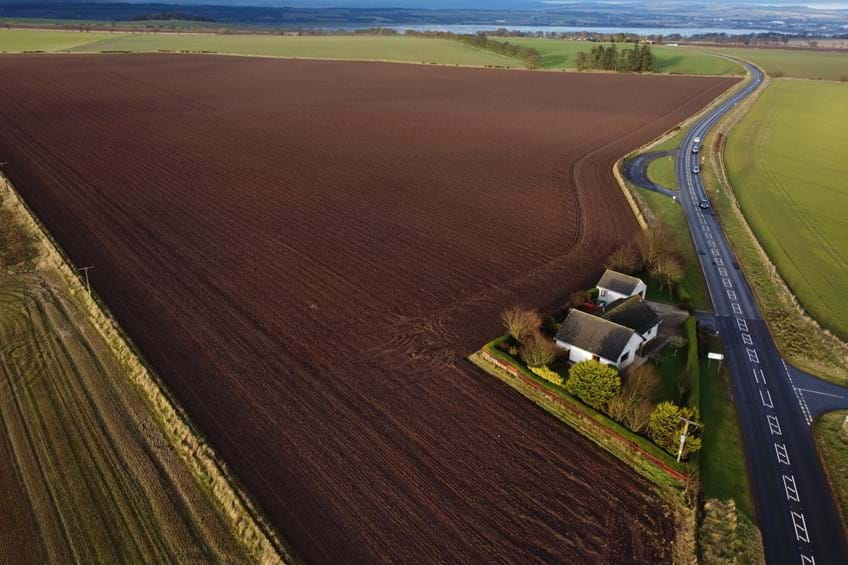Whither Agricultural Property Relief?
5th May 2010
Whither Agricultural Property Relief?
There is a general belief in the agricultural community that there is no Inheritance Tax to pay on gifts – in lifetime or on death – on agricultural property. This is because agricultural property attracts 100% relief effectively meaning no tax is payable.
Sadly, whilst in many cases that is true there are a number of situations that the Revenue has challenged recently where the Court has restricted the way in which the relief works. This is particularly the case with farmhouses.
The rules are complicated and the following is very much a ‘potted version’. Each situation needs to be looked at individually but there are two areas where it is becoming increasing easy to lose out on some or all of the relief inadvertently.
1. The Farmhouse
Agricultural property is defined as ‘agricultural land including buildings and the farmhouse’. To qualify for relief the property must have been occupied by the person making the gift for two years prior to death or owned for a period of seven years and throughout that period used for the purposes of agriculture.
Although there are certain exceptions the property must be vacant possession – or at least vacant possession must be available within twelve months.
Many ‘non-farmers’ have attempted to take use of this relief by buying up agricultural land with a nice house and turning their hands to farming – often through contractors. These are the arrangements that have been challenged but unfortunately these challenges have restricted the availability of the relief for all so far as the farmhouse is concerned. The main points to remember are as follows.
a) The farmhouse has to be of a character appropriate to the property, appropriate that is to the property being given not the entire extent of what is being farmed. The classic problem is of the farmer owning 400 acres with a house in the middle of it and on retirement giving 380 acres away but just keeping 20 acres and the farmhouse will almost certainly mean the farmhouse is no longer of a character suitable to the 20 acres still retained.
b) The farmhouse must be occupied for the purposes of agriculture. The cases – but not the legislation – basically state that the farmhouse must be occupied by ‘the farmer of the land’. Here ‘the classic sin’ on retirement is to let the land on a Farm Business Tenancy but retain the farmhouse. That loses agricultural property relief on the farmhouse. A more recent decision actually disallowed the relief because for the two years prior to the date of death the farming was effectively carried out by somebody else. This was even though there was a written contracting arrangement in place and – in theory at least – the decisions were taken in the farmhouse. This is a very worrying situation given that on retirement many farmers either let their land or go in for contracting arrangements to save work. Clearly to have a fighting chance of getting full agricultural property relief on the farm the contracting arrangement is the better of the two but the farmer must continue being actively involved in the farming business – whatever that might mean! If some acts of husbandry can be carried out such as ploughing that would be helpful. Similarly retaining ownership of the crop and doing the selling would be helpful. Certainly annual accounts should continue to be made and sent in showing the gross income as sales.
c) It has to be remembered that agricultural property relief is only given on the agricultural property value. In other words the value on the assumption the property can only be used for agriculture. For practical purposes that means the farmhouse would be valued on the basis of a theoretical agricultural habitation clause as is typically imposed by planners on new farmhouses and this will mean that anywhere between 15% and 30% of the value does not attract relief. The more integral the farmhouse is with the yard and other farm buildings – including such things as common access – the lower the discount will be but if the house is a very nice free-standing house perhaps away from the main buildings and even worse with a nice paddock between it and the buildings, then the discount is likely to be at the higher end of the scale.
2. Who/what should own the land?
Most family farms have ownership of the land spread between the family: some might even be owned by the farming company. It is very easy to fall foul of the rules and end up with only 50% relief where land is owned by one person but actually farmed by another entity – such as the company – even though it is all ‘family’. Again each case needs looking at individually but fundamentally if the person making the gift does not have control of the company when the gift is made (including on death) agricultural property relief will be reduced to 50%. This can make a very significant difference to the tax that is payable.
Similarly farming through a company where the person making the gift has taken a back seat in running the farming business could well result in the loss of agricultural property relief on the farmhouse. There can also be problems if the farmer leaves a spouse who lives in the house but is not part of the business.
There is no one simple answer to these problems but with care they can be addressed as part of the planning process.
For example, where land is owned by one person but farmed by another entity care should be taken not to pay rent.
So far as the farmhouse is concerned this should be considered as and when the business is passed down to the next generation. In some cases careful use of the transferable nil rate band between husband and wife may well be sufficient to offset the problem but in other cases consideration might need to be given to make sure as and when the farmer retires he also leaves the farmhouse – and will probably not retire until he does leave the farmhouse. Of course tax should not be the sole consideration. It must go hand in hand with operating the farm commercially and making sure that farmers and their surviving spouses are properly looked after financially. However it is an important part of the consideration in terms of keeping the business intact and is likely to become increasingly important if – as many of us suspect will be the case – the current very generous levels of agricultural property relief are reduced to pay the national debt!
If you need advice on Agricultural Property Relief or any other aspect of Agricultural Law, then please contact us on 01775 820 353.



